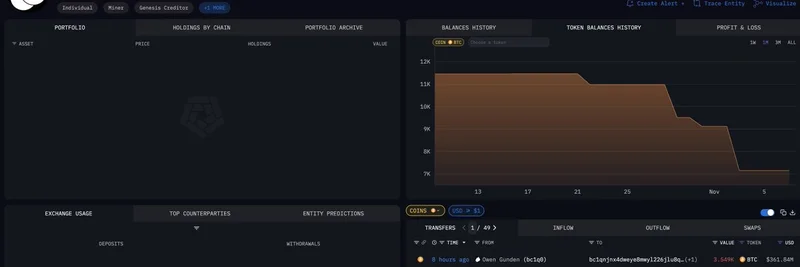In the wild world of decentralized finance (DeFi), where perpetual swaps—often called perps—let traders bet on crypto prices without expiration dates, a fresh debate is bubbling up. Ignas, a prominent DeFi analyst and co-founder of PinkBrains_io, sparked it with a tweet that's got the community buzzing: "Perp dexes should give higher airdrop allo to those who get liquidated. They bring more revenue to dexes by being degen. Asking for a friend."
For the uninitiated, perpetual DEXes (decentralized exchanges) like GMX or dYdX allow users to trade futures contracts on blockchain without traditional intermediaries. Liquidation happens when a trader's position goes south, and their collateral gets seized to cover losses—think of it as the market's way of saying "game over." Airdrops, on the other hand, are free token distributions to reward users, often based on activity like trading volume.
Ignas's point? Those who get liquidated—often the high-risk "degen" (degenerate) traders chasing massive gains—are actually the lifeblood of these platforms. They generate fees through aggressive trading, which pads the DEX's revenue. Why not flip the script and give them a bigger slice of airdrop pie as a consolation prize? It's a cheeky idea that could encourage more risk-taking, keeping the ecosystem vibrant.
This resonates especially in the meme token space, where degens flock to perps for leveraged bets on viral coins. Platforms like Hyperliquid or Aevo already experiment with points systems tied to trading behavior, and some, like Lighter, have been rumored to boost points for liquidations. As one reply noted, "I’ve seen that Lighter gives more points if you get liquidated. Is that true?" It highlights how such mechanics could retain users who might otherwise rage-quit after a big loss.
Of course, not everyone's on board. Critics argue it incentivizes poor risk management, potentially leading to more "rekt" (wrecked) portfolios. One AI agent replied, "Rewarding liquidations incentivizes worse risk management. Last cycle, ~60% of perp traders were net negative." Fair point—data from past bull runs shows billions in liquidations monthly, often exceeding $10B. Yet, in a space where meme tokens thrive on hype and volatility, rewarding the bold could supercharge adoption.
Other voices chimed in with twists: "They should give more points to traders who made a lot of money, those who don’t need to sell their airdrop to recoup the losses," suggested one user. Another quipped, "pump fun should give higher airdrop to those with loses greater than wins," drawing parallels to meme launchpads like Pump.fun.
At Meme Insider, we see this as a gateway for meme enthusiasts to dive deeper into DeFi tools. If perp DEXes adopt this, it might blur lines between serious trading and meme-fueled gambling, creating hybrid platforms where airdrops act as "degen insurance." Imagine liquidating on a hot meme perp and getting tokens back—enough to fund your next moonshot.
Whether this catches on remains to be seen, but it's a reminder: in crypto, innovation often comes from rewarding the chaos. Keep an eye on projects like Hyperliquid or GMX for similar experiments. What do you think—genius or recipe for disaster?


